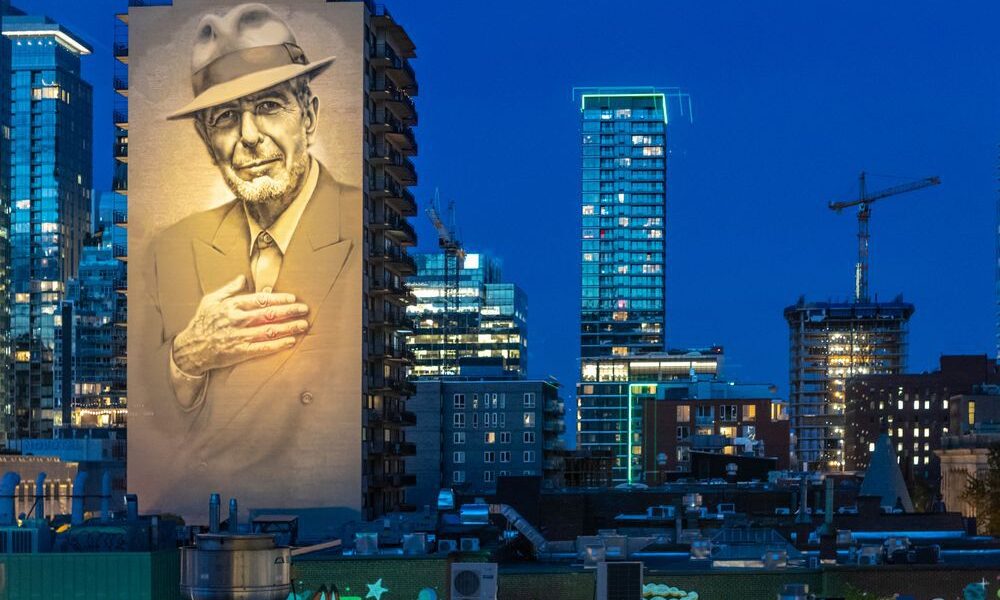Nov. 7 marked the fifth year anniversary of the passing of Leonard Cohen, a beloved singer-songwriter, poet, novelist, Montrealer, and 1955 McGill alum. Known for the depth and profundity of his work, the prestiged artist will continue to be commemorated by Montrealers, McGill students and staff, and fans around the world.
For Leonard Cohen, the Montreal community was, and would always be, a home. He kept a house just off of St-Laurent Blvd, overlooking the numinous Parc du Portugal. He was frequently seen in his later years occupying a stool at the nearby Bagel Etc.
Leonard Cohen was thrust into stardom in 1967 with a nervous yet enthralling performance of “Suzanne.” Later in life, powerful tracks such as “Last Year’s Man” and “Hallelujah” would forever establish his reputation as a creator whose works were thematically bold and potent. His deep, rich voice and dynamic lyricism touched the very recesses of listeners’ hearts.
But for some, it’s not the gravity of his voice or words but the grandeur of his guitar playing that satisfies the heart. He met a Spaniard at Murray Hill Park near his childhood home in Westmount, Montreal who taught him flamenco-style guitar, as well as the simple yet elegant six chord progression that fans came to expect in Cohen’s music.
Blurring the line between poetry and song, Leonard Cohen ultimately became a cultural icon. Known as the “Godfather of Gloom” and “Pop’s Poet Laureate,” his distinctive character and artistic authenticity gave him a legacy that seemed sure to prevail. After his passing, with the inevitable emergence of critics contesting the longevity of his work, we are left to observe how his legacy continues.
“The guy seems to resonate, and five years after his death I don’t really see it changing,” said Brian Trehearne, a professor in the Department of English, in an interview with The McGill Tribune. “Maybe there’s another cycle coming, in fact, a new generation is discovering it.”
On the other hand, criticism has been directed at the endurance of some of Cohen’s work. Canadian author Anaka Schofield, for instance, writes that Cohen’s second novel Beautiful Losers “remains a failed, fossilized encounter.”
Despite this discourse, it seems that Leonard Cohen’s spirit trudges on more powerfully than ever. In Montreal alone, two murals depict his visage. The one on Crescent St., made by artists Gene Pendon and El Mac in 2017, is a towering 22 stories high and watches over Montreal in a gaze of enclosing warmth. The other, situated on the side of the Cooper building on St-Laurent Blvd by Kevin Ledo in 2018 is slightly more humble in size, yet just as artistically impressive. As Cohen expresses in his first novel The Favourite Game (1963), his soul is preserved in Montreal: “Some say that no one ever leaves Montreal, for that city, like Canada itself, is designed to preserve the past, a past that happened somewhere else.”
“I think the vast majority of his audience is exactly where they were ten years before he died,” Trehearne said. “They love his work, and they miss him.”
And so his relevance persists. With the COVID-19 pandemic slowly easing as vaccines are rolled out and restrictions lifted, we may find comfort in a particular verse from “Sisters of Mercy,” which Cohen wrote in a single inspired sitting: “If your life is a leaf that the seasons tear off and condemn / They will blind you with love that is graceful and green as a stem.”








